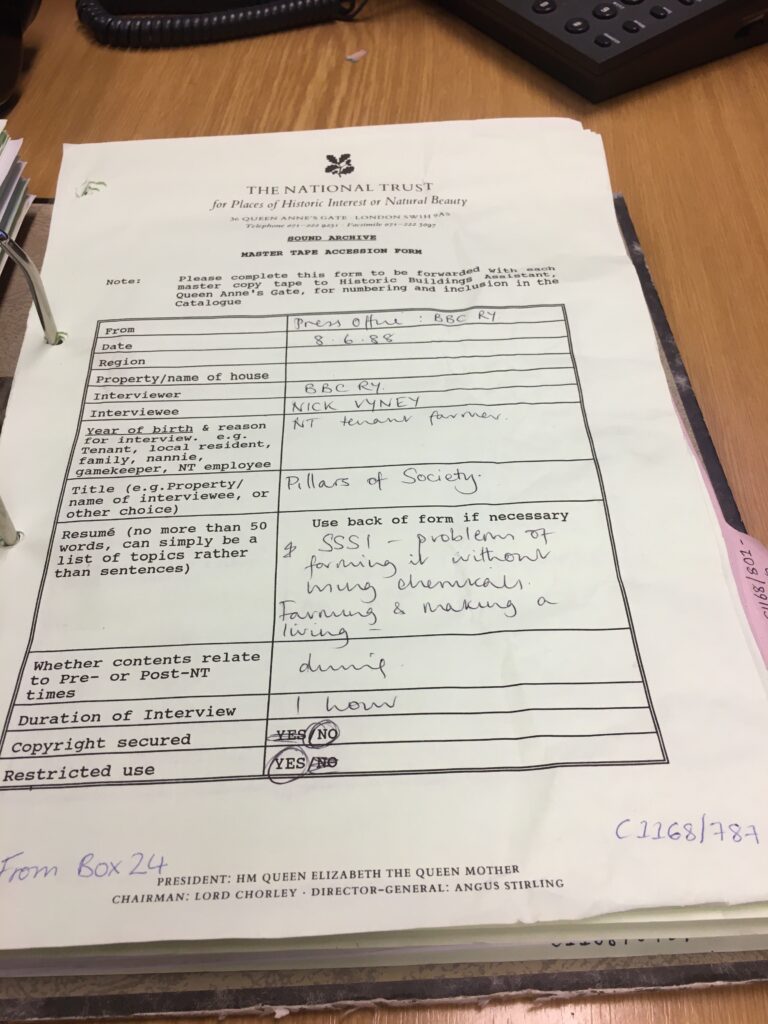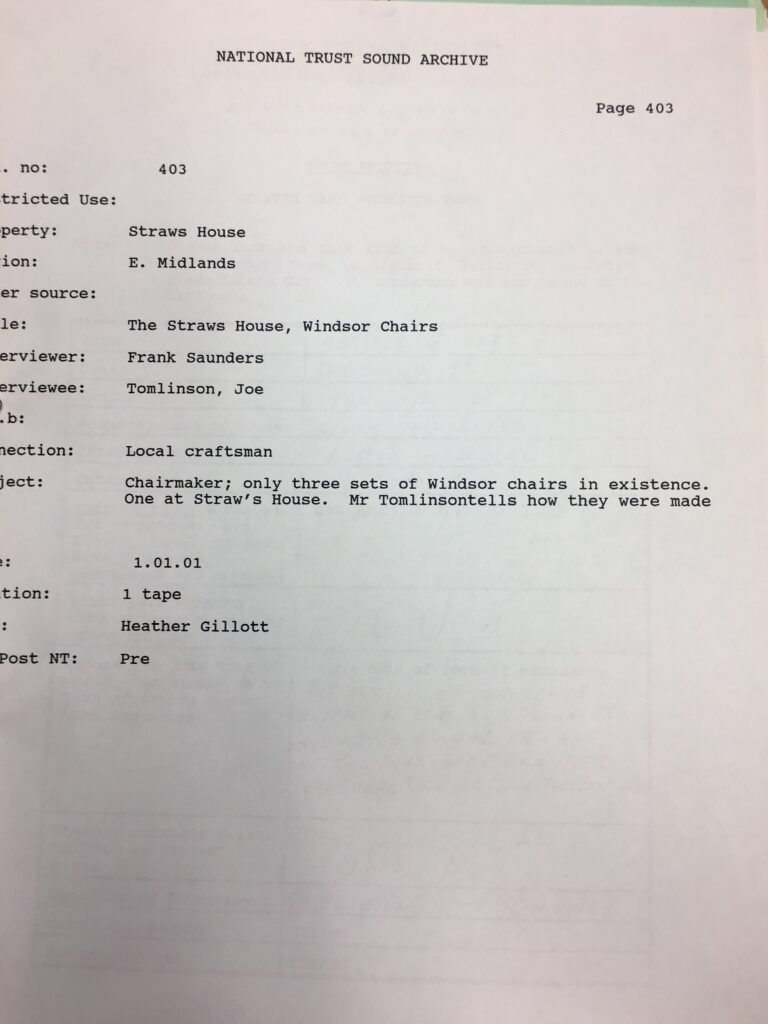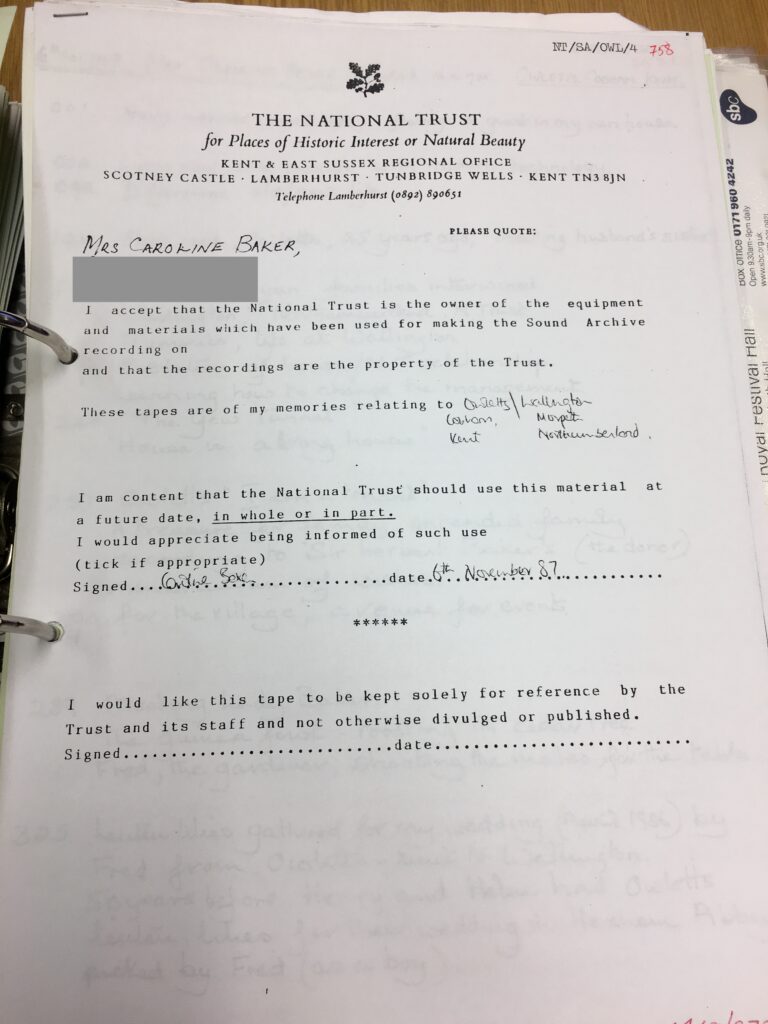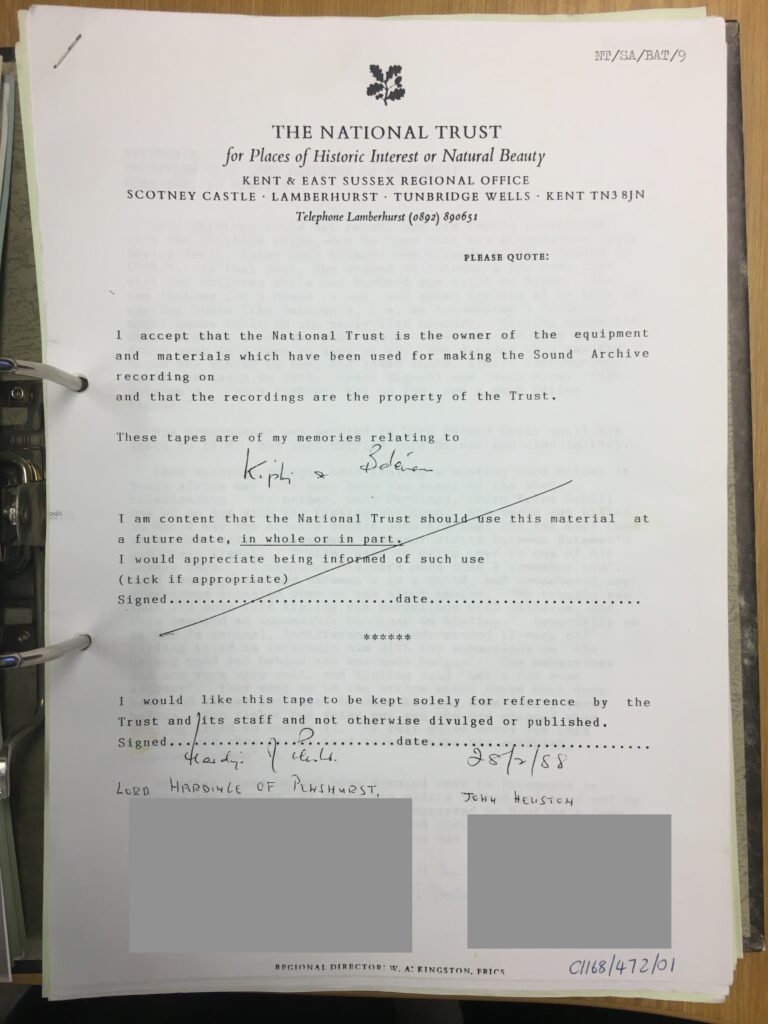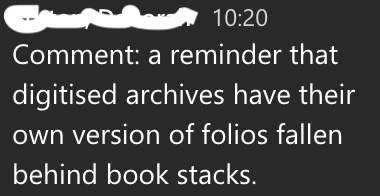Tag Archives: Archives
OHD_COL_0272 Collection of photographs of the National Trust Collections’ forms
OHD_FRM_0253 Notice and takedown request review
OHD_FRM_0252 Takedown request form
OHD_RPT_0250 NCBS sensitivity check doc
OHD_RPT_0249 NCBS Takedown and alterations policy
OHD_BLG_0254 Blog post on the first month at NCBS
From a lively archive in Bangalore
Between indulging in delicious food and gandering around the stunning campus of the National Centre of Biological Sciences (NCBS), I sit at a hot desk in the basement where the Archives at NCBS is housed. The term ‘basement’ is slightly misleading as the sun shines through windows which face a sunken outdoor amphitheatre, where I can watch paradise birds flirt with each other in the trees. When not distracted by birds or food, my attention might be drawn away from my work by one of the eleven other people working in the Archive. It is the loudest archive I have ever been in, even when I discount the constant humming of the air conditioning. It is also the most welcoming workplace I have ever worked in. The Archives at NCBS is a hub of multidisciplinary folk, all coming together to build this archive, which is still very much in its infancy, celebrating its fourth birthday on this month. Therefore, a lot of the work is focused on growing the archive, with some team members creating a digital catalogue, others expanding the collection, and many involved in developing the various work flows necessary to keep an archive running.
This development of workflows, which I am also playing a role in, is necessary because, like so many organisations in the GLAM (galleries, libraries, archives and museums) sector, the Archives at NCBS is working within the grant cycle. This automatically leads to a lack of consistency under the staff and therefore creates a somewhat unsettled work environment. From February 2019 to February 2023, around 60 interns have passed through the archives’ doors. When I started my conversations with the head of the archives about doing my placement here, the archives team was three people. Now it has grown to twelve, including two archivists, a software developer, various artists in residence and an outreach team. There are also several other researchers who use the Archives’ reading room and offices to work in. What I am witnessing within the walls of the NCBS basement is how the sudden expansion and change within the archive is causing some growing pains. These growing pains should not be considered a negative, but as part of the natural process of building an organisation. They are what is motivating the development of various workflows.
Developing these workflows is necessary because, while the previous team of three were easily able to know exactly what the others were doing, the current members of the archive team are slightly less sure, even though they are all in the same room. By creating workflows, the workers of the archive, new, old, temporary, and permanent, will be supported in their work, allowing the larger work of the archive to be carried easily through the grant cycles and revolving door of many interns. However, this is not an easy task, especially when everyone still needs to carry out their day-to-day work alongside the workflow development. I am, therefore, doing my bit by creating the archives’ notice and takedown workflow. I am looking into how the archives can edit, redact, and remove archival material and capturing this process in a way which is helpful for users of the archives and present and future archivists.
While overall my first month in India has been delightful; filled with lovely weather, delicious food, and a group of generous and considerate co-workers, I will admit it took me some time to find my feet in the work at the archive. At first it was not clear what I should be doing, but now, with the development of the takedown workflow, I have been given direction, and am glad to be here to help the archive through this unsteady and nebulous time. The Archives at NCBS might not know exactly what it is doing right now, but that is okay; no one really knows what they are going to be at the age of four.
OHD_WHB_0248 Miro board of the archiving workflow
OHD_WHB_0247 Miro board of the NCBS away day
OHD_WHB_0246 Miro board of NCBS placement
OHD_LST_0244 Links to archives and online fun
Podcasts
BBC Radio 4 – A History of Ghosts Ep. Did You Hear That?
BBC Radio 4 – The Patch
BBC Radio 4 – Under the Cloud
BBC Sounds – Elon Musk: The Evening Rocket, Ep. 4 – Baby X
Puskin – The Last Archive
Reply All – #168 Happiness Calculator vs. Alex Goldman
Reply All – #171 Account Suspended
This American Life – The Room of Requirement
Documentaries
Dirty Streaming: The Internet’s Big Secret
The Great Hack
The Social Dilemma
Shirkers
Archives
The Citizens Archive of Pakistan
Creative Memory of the Syrian Revolution
Online Things
The Affective Computing Research Group
Archive It built by the internet archive
CoHERE 4 – Futurescaping and the Deletion Bureau
The John Nicholas Brown Center for Public Humanities and Cultural Heritage
National Digital Stewardship Alliance
Save our Sounds by The British Library
Talks
Impossible Archives, Infinite Collections by Carles Guerra
Shklovski, I. (2021) AI as relational Infrastructure during the Not Equal summer webinars
OHD_MMP_0156 Wicked Problem Map
OHD_SSH_0146 Zoom comment on digital archives
OHD_WKS_0131 Break the Archive
My first workshop with strangers! It was called Break the Archive and it was really fun but too short. You can download my report below.
OHD_WKS_0129 Creating Space for Voice
Miro Board
A link to the workshop Miro Board
Workshop Plan
In this workshop the participants will be asked to reflect on which spaces restrict or elevate voice and what elements, methods, or tactics are used to make these spaces. They will be challenged to turn to archives and question how this space handles voice and what it could learn from other spaces. It is a workshop where no idea is a bad idea, and thinking outside of the box is a must.
All of the activities will be using a miro board to capture what is being said and explored.
Intro (2 mins)
I will very briefly introduce myself, my project and what we are going to do in the workshop.
Activity One: What is an archive? (10 mins)
Aim: To break down the symbols and language of the archive
Task: The participants will be deconstruct the archive through the five senses. What doing they see, smell, hear, feel, and taste when they are in an archive or think of when they hear the word ‘archive’?
Activity Two: The Scale of Voice (10 mins)
Aim: To map different spaces on a scale of suppressing the voice to elevating the voice and identifying where people feel they are most listened to
Task: The participants will be asked to think of the spaces where they feel their voice heard and where they feel their voice is suppressed. Hopefully, spaces from museums to dinner tables to secondary school classrooms to Twitter will be mapped along a scale, which in the end will show us where people feel most comfortable to speak.
Activity Three: What are these spaces? (10 mins)
Aim: To break down the symbols and language of the spaces where the participants feel their voice is most elevated
Task: Just like the first task the participants will deconstruct the space where they feel the most listened to through the five senses. What doing they see, smell, hear, feel, and taste when they are in these spaces? Depending on the number of people participating each space can be tackled consecutively if there are not many participants or in break out rooms where each rooms breaks down a different space.
Activity Four: What now archive? (15 mins)
Aim: To generate ideas and concepts that could transform the archive into a space more like those where people feel heard
Task: The participants will be invited to compare and contrast the experiences of archives and the spaces dissected in the previous activity, and use this as inspiration to create concepts and ideas that could make archives into a more voice friendly space.
Final thoughts (What ever time is left)
At this point people can ask questions, add any additional thoughts and ideas to the miro board, and generally reflect on the workshop as a whole.
OHD_BLG_0039 It’s not my problem
There is a problem within the National Trust’s storage system (SharePoint) that is sadly a consequence of democratisation. SharePoint is a complete mess and no one really knows what is going on or who to ask about what is going on. And although this has a lot to do with the design of SharePoint and the lack of transparency surrounding the structure of folders and such, there is another reason there is so much chaos in the folders and that is control. You see before this chaos took hold it was the collection staff who would have been in charge of the archival and collection material, while others might handle files concerning business. Information would have been kept on people’s shelves in their offices, and so to access this information you would have to go through a human. This might in some cases be really annoying because the person who could grant access wasn’t feeling up for it. But then the internet came along with the main intention to make information free and accessible – a more democratic system. Like everyone else the National Trust also decided to remove its strict system of gatekeepers and adopt the attitude of the internet. And this is where an unforeseen consequence arises because while before one person was responsible for a file, now everyone is responsible for all the files, there are no parameters. And because everyone is in charge of looking after everything it is really easy for the individual to simply hope that the next person will sort out that file. Also because looking after files is maintenance and people do not like doing maintenance. Now do not get me wrong I agree that we should have better access to archives and no has the right to deny someone access, but in a world where everyone is responsible, no one is responsible and the National Trust’s SharePoint proves this.
OHD_BLG_0046 the nerd filter
The nerd filter is an idea that I have been mulling over for a while now. The basic principle is that you gain more access to an archive the more time you spend in the archive and interacting with the archivists. In other words as you get more integrated into the community of the archive you are able to view more sensitive documents. I see it as a type of social trade. The user invest their time into the archive and exposes themselves to the eyes of the archivist and in return they gain trust and access to other documents. The reason it is called the nerd filter is because those who are not as passionate or “nerdy” will eventually give up and leave the archive community. The people who are then left behind are the proper nerds, who have a significant amount of social capital with the archive. My theory is that these leftover nerds will be more responsible with archive material because they risk losing the access they worked so hard for if they betray the archive community.
It is like a type of loyalty card scheme, but whether it will be taken on by archives is another question…
OHD_BLG_0074 Archival Discoveries and Discussions – 25/02/21
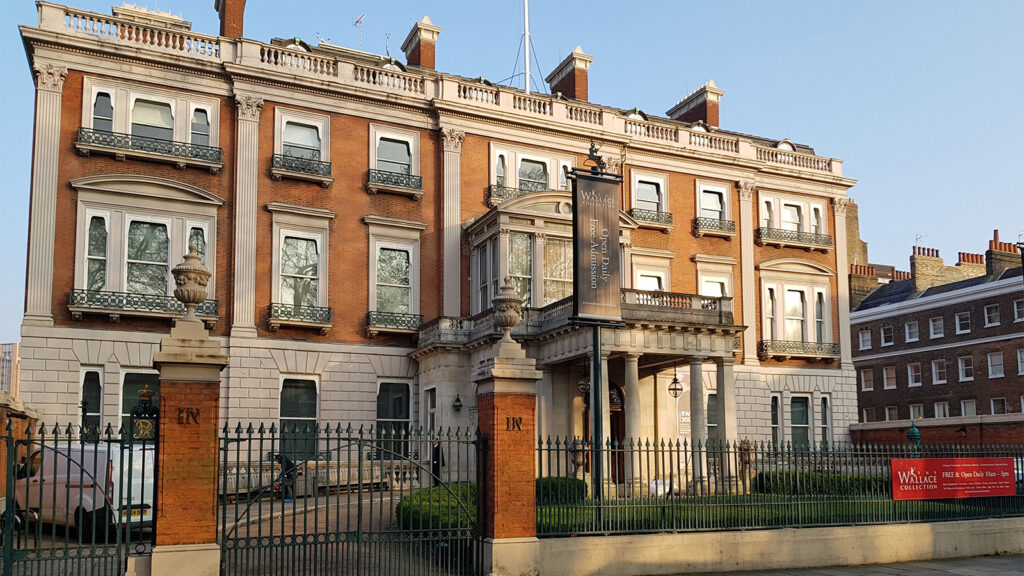
I zoomed into a “workshop” with PGR and professional archiving people. I say “workshop” with speech marks because people are becoming very liberal with this word. Workshops produce outcomes and involve interactions, presentations and panels do not do this. Stop using this word. Anyway it was very interesting and helpful because I could actually talk to people using archives and archivist. So with further ado lets get reviewing…
One of the big issues currently is that people cannot get into archives, this happens at different levels. Some researchers have access to digital archives, but then they can’t read the photos, some only have access to the catalogue and some have zero access. This is due to the fact that all archives work in different ways and many are at different levels of digitisation. This can be due to money but also different laws and regulations of the country the archive is situated in. This limited or complete lack of access is very annoying if you are doing a PhD that only has a certain amount of funding. Over the various Zooms I have part taken in I see that it causes a lot of frustration but I have also observed that people are getting more creative in the ways they get hold of documents. For example one person mentioned that eBay is a great source of archival images. Another person mentioned that they had started to use their network to gain access to artefacts. They were doing a project that involved using German archives, which turns out are not good when it comes to digitising, so they got people they know to send them photographs. This was not the first someone had told me about this. It seems that in some cases it is better to rely on humans to find stuff in the archives than computers. Which brings me to my point:
STOP REPLACING PEOPLE WITH ROBOTS
I asked a question to the PGR panel about what they thought about digital archives verses the physical archive (aka Brick and Mortar Archives). They gave some great answers around missing the materiality of documents, how you lose the serendipity of archiving in digital archives and how online catalogues do help setting up before going into a brick and mortar archive. They also mentioned the common problem of tags and keyword searches not being good enough. One of the archivists that works in the University of Nottingham archives responded to this by saying that people should always ask the archivists what they are looking because they know the archive. This in combination with the people using their networks in order to access archives got me thinking that our drive to digitisation in archives is having the same effect as it is having in different places. It is replacing people with computers that definitely cannot do the job in the same way. For example I have a dislike for the self check outs because it clearly does not work as well as a human cashier, which is evident by the staff member who has to stand next to the machine.
Do not get me wrong I am not against digitisation nor do I believe that archivists’ current job outline does not need updating. But I believe that relying heavily on digitisation will not solve our archive problem nor will employing more of the same archivists. We need something in between. Something that has the similar flavour to people using their international network to send archives across borders, which would not be possible without both technology and humans.
OK second note…
As I am currently exploring a lot right now the existence of an archive also creates the ‘existence’ of histories lost. What was interesting about this panel is that the majority were doing work with minority histories BAME and LGBTQ+ etc. Because of this many of them talked extensively about how they managed and handled the gaps that are found in archives that represent the neglected histories. One person talked about counter-reading which is the method on examining the gaps in an archive, the reasons these gaps might exist and then combining this with the contextual knowledge in order to create a history.
One of the speakers was using social media as an alternative archive and I asked her how she felt about the ethics of having an archive on a social media:
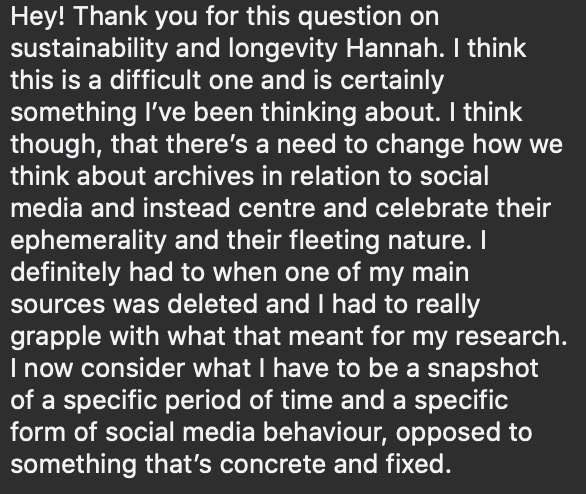
We continued the conversation and started to talk about the principle of counter archives; archives that are created by those not represented in brick and mortar archives, often using a more DIY attitude. By DIY attitude I mean only using the resources you have access to, so in many contemporary cases this means they do end up only.
I believe that further investigation into these counter archives and methods like counter reading could hold some interesting ideas on how we might approach the SDH archive.
